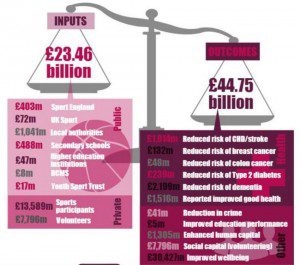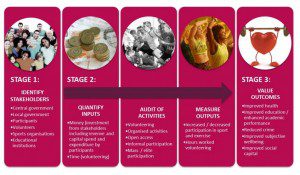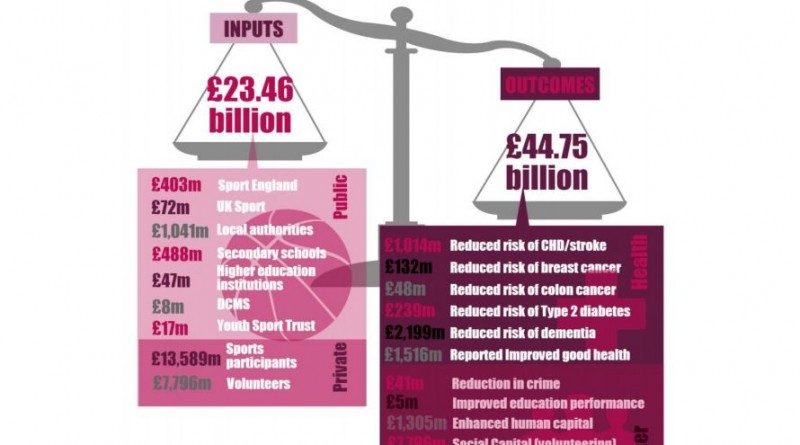Sport participation worth £44.75 billion in social return, says Sheffield Hallam Uni
Research by Sheffield Hallam University has concluded that for every £1 spent on sport, at least £1.91 worth in benefits are generated.
sport, at least £1.91 worth in benefits are generated.
Funded by the Higher Education Investment Fund and supported by Sport England and the Department for Culture, Media and Sport, the research looked beyond just medical return on investment, also considering reduction in crime, educational performance and life satisfaction. It is hoped that the study’s conclusions will now support policy makers in making a case for investment in sport.
In 2013 to 2014, £23.46 billion was channeled via various sources into sport participation by the public and private sectors. The University’s study suggests that the value of the social benefits returned totaled £44.75 billion.
“It is the first time the impact of sport has been evaluated using the Social Return on Investment method and it is a valuable way of showing just how effective sport is in our society,” said Dr Larissa Davies, one of four authors on the report. “At Sheffield Hallam, we are committed to increasing the level of physical activity on a national scale and by demonstrating just how beneficial sports participation can be we hope we are another step closer to achieving our goal.”
Based largely on the participation of children and adults and using both the Taking Part Survey and Active People Survey as a guide, researchers analysed as a wide range of social benefits, but admit the project may even underestimate the social value of sport.
“We have knowingly excluded several health, crime and education impacts (positive and negative) from this study, through a lack of sufficient empirical evidence on the effect of sport on social outcomes and/or the value of such effects,” said the study in its conclusions.
Some of the key returns delivered include:
- Reduced risk of dementia worth £2.1billion
- Reduced risk of heart disease and stroke worth £1.14billion
- Lower risk of Type 2 diabetes worth £239million
- Lower risk of breast cancer worth £132million
- Reduced risk of colon cancer worth £48million
- Reduction in crime worth £41million. Sports participation offered a 1% reduction in incidents within ages 10 to 24 years.
- Improved life satisfaction worth £30.4billion to society
- Improved educational performance worth £5million
- Graduates who participate in sport at university earn an average of 18% more per year than their non-sporting counterparts
- Sports participation is found to be associated with higher subjective wellbeing
When it comes to a breakdown of funding sources, the results delivered £3.15 worth of social impact generated to every £1 invested by Government.
Every £1 invested from a public sector perspective returned £1.79 worth of social impact, though some assumptions come into play in this part of the study.
The university now welcomes outside interest in taking the study’s agenda forward in order to discover and quantify further benefits.
“It (the study) represents a first attempt to use a SROI analysis to value the sports industry and it is one of only a few studies that attempt to apply the method at a sector wide level more generally,” explained the conclusion. “As such, the application of the SROI approach to sport is in its infancy, and although it provides a potentially useful tool for measuring the wider benefits of sport to society in the future, further research is required to improve its measurement accuracy. Most importantly, future research should focus on improving the quality of evidence that is used in the SROI, primarily the empirical evidence to demonstrate the relationship between sport and social outcomes. We would welcome discussions with interested parties in how this research agenda can be taken forward.”
The report echoes the World Health Organisation’s report that further suggests building activity into our daily lifestyles.
To read the full report, click here.



